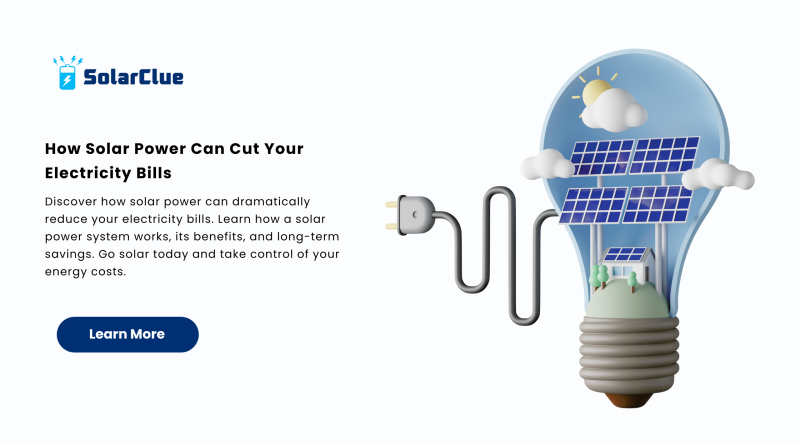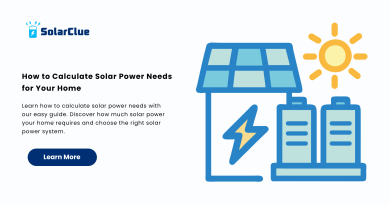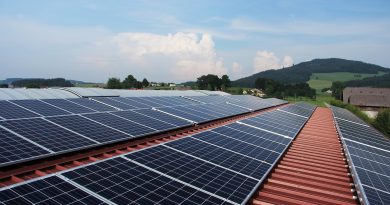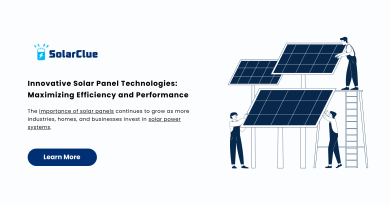How Solar Power Can Cut Your Electricity Bills
Electricity bills have become a growing concern for millions of Indian households and businesses. As our dependency on electronic appliances, air conditioners, and modern gadgets increases, so does our monthly power consumption. With conventional energy tariffs rising each year, many are searching for sustainable solutions that offer long-term savings. This is where solar power comes into the picture. By tapping into clean, abundant solar energy, you can significantly lower your monthly expenses and gain energy independence. In this blog, we’ll show you exactly how solar power can cut your electricity bills, what systems work best, and why now is the perfect time to make the switch.
Table of Contents
- 1 What Is Solar Power and How Does It Work?
- 2 How Solar Power Helps You Save Money
- 3 Long-Term Financial Benefits of Going Solar
- 4 Key Factors That Influence Solar Savings
- 5 Why Businesses Should Also Consider Solar
- 6 Myths About Solar Power and Your Electricity Bill
- 7 Real Example: How Much Can You Really Save?
- 8 Is Solar Power the Right Choice for You?
- 9 FAQs: How Solar Power Can Cut Your Electricity Bills
What Is Solar Power and How Does It Work?
Solar power is the energy generated from sunlight using solar panels. These panels convert sunlight into electricity through a process called the photovoltaic effect. A typical solar power system includes:
-
Solar panels
-
Inverter
-
Mounting structure
-
Wiring and connectors
-
Battery storage (optional)
The sunlight hits the solar panels, producing Direct Current (DC). This is converted into Alternating Current (AC) by the inverter, making it usable for your home or business. This clean and renewable solar energy powers your appliances during the day—cutting down your reliance on grid electricity and reducing your monthly electricity bills.
How Solar Power Helps You Save Money
Generates Free Electricity from Sunlight
Once your solar power system is installed, you start generating free power every time the sun shines. This reduces the amount of electricity you need to buy from your utility company, cutting down your monthly expenses.
Enjoy Net Metering Benefits
In India, many states offer net metering, which allows homeowners to feed excess electricity back into the grid. In return, you receive bill credits. This means if you produce more power than you use during the day, that surplus reduces your night-time energy costs—further lowering your electricity bills.
Protection from Rising Electricity Tariffs
Electricity rates are increasing every year. But when you generate your own solar energy, you become less affected by price hikes. Your solar savings remain consistent and predictable, helping you plan your finances better.
Long-Term Financial Benefits of Going Solar
Excellent Return on Investment (ROI)
Though the upfront cost of installing solar panels might seem high, the long-term gains are significant. Most homeowners recover their investment in 5 to 7 years, and the solar power system continues to deliver free electricity for another 18 to 20 years after that.
Take Advantage of Government Subsidies
To promote clean energy, the Indian government provides subsidies of up to 40% for residential rooftop solar panel systems. These incentives lower your initial costs and make solar more affordable than ever.
Increase in Property Value
Installing solar panels not only cuts bills but also boosts your property’s resale value. Homes with solar installations are more attractive to eco-conscious buyers and tend to sell faster at a better price.
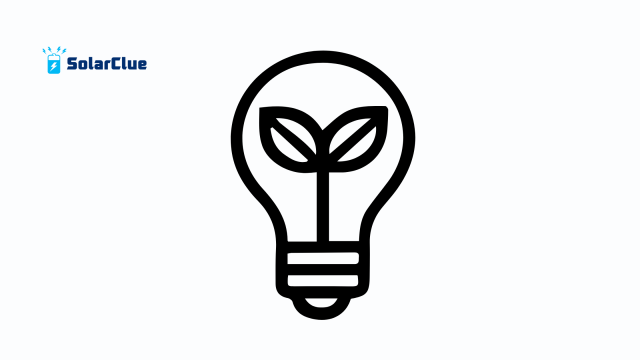
Key Factors That Influence Solar Savings
Your Energy Consumption Patterns
The more electricity you use during the day, the greater the benefit of solar. Homes that run air conditioners, water pumps, or washing machines during daylight hours save the most using solar energy.
System Size and Efficiency
Choosing the right system size is crucial. A 3kW to 5kW solar power system typically suits a standard Indian household. It can reduce your grid consumption by 70% to 90% depending on your usage and sunlight availability.
Location and Roof Orientation
Sunlight availability depends on your region. States like Rajasthan, Gujarat, Karnataka, and Maharashtra are ideal for solar panel installations. A south-facing, shadow-free roof offers the best performance.
Battery Backup Option
Adding a battery lets you store excess solar energy for nighttime use or during power cuts. Although it increases upfront cost, it boosts savings and energy independence in the long run.
Why Businesses Should Also Consider Solar
High Daytime Usage Matches Solar Generation
Businesses often operate during the day when solar output is highest. This makes it ideal for commercial spaces to use solar power for lighting, machinery, air conditioning, and computing.
Tax Benefits and Depreciation Advantage
Under Indian tax laws, commercial solar installations qualify for accelerated depreciation. This reduces taxable income and enhances your return on investment—making solar power systems even more lucrative for businesses.
Myths About Solar Power and Your Electricity Bill
“Solar Doesn’t Work on Cloudy Days”
False. Even during overcast weather, solar panels capture diffused sunlight and generate electricity—though at slightly reduced efficiency.
“Solar Requires High Maintenance”
Untrue. Modern solar power systems are designed to be low-maintenance. Occasional cleaning and yearly inspections are usually sufficient to keep your system running smoothly.
“Solar Is Only for the Rich”
This is outdated thinking. With government subsidies, falling equipment costs, and EMI financing options, solar energy is now affordable for the average Indian household.
Real Example: How Much Can You Really Save?
Let’s assume your monthly electricity bill is ₹3,000. A 3kW solar power system can help you save around ₹2,000–₹2,700 every month. That’s over ₹30,000 annually, or ₹7.5–₹8 lakhs over the panel’s lifetime.
Considering the average system cost is around ₹1.5–2 lakhs (after subsidy), the returns are clear—and impressive.
Is Solar Power the Right Choice for You?
If you meet the following conditions:
-
You pay more than ₹1,500/month in electricity bills
-
You have 250–400 sq. ft. of shadow-free rooftop space
-
You live in a region with decent sunlight (most parts of India qualify)
Then you’re an ideal candidate for solar. With a simple consultation and a few documents, you can begin your journey toward energy independence and long-term savings.
FAQs: How Solar Power Can Cut Your Electricity Bills
How much can I save every month with solar?
Most households save between 70% to 90% on their electricity bills based on system size and usage.
Do solar panels work during power cuts?
Only if you have a battery or hybrid inverter. Otherwise, standard on-grid systems shut off for safety reasons during outages.
Can solar work during monsoon or cloudy days?
Yes. Solar panels produce electricity from diffused sunlight even on cloudy days, although efficiency is slightly lower.
What is the life expectancy of a solar panel?
Most solar panels come with a 25-year performance warranty and can function efficiently even beyond that with minimal degradation.
Is it possible to go off-grid completely?
Yes, but you’ll need a larger system and battery backup. Many users prefer grid-tied systems with net metering for flexibility and lower costs.
If you’re ready to slash your electricity bills and invest in a greener future, visit solarclue.com to explore India’s best solar brands and personalized solutions—or dive deeper with insights and guides at blog.solarclue.com. Your solar journey starts today—make it count.

